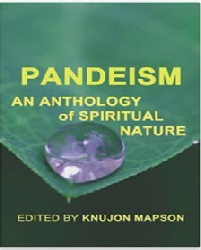The Natural Law Argument
“If you say, as more orthodox theologians do, that in all the laws which God issues He had a reason for giving those laws rather than others—the reason, of course, being to create the best universe, although you would never think it to look at it—if there was a reason for the laws which God gave, then God Himself was subject to law, and therefore you do not get any advantage by introducing God as an intermediary.”
~ Bertrand Russell, “Why I Am Not a Christian”
Natural confused me more than once during my Catholic upbringing: both natural theology and natural law were misconstrued by my tender ears. The Catholic Church emphasizes natural theology over revealed theology. While natural theology actually refers to a belief system based on reason and ordinary experience in contrast to a revealed theology based on scripture, I conflated the word natural with St. Bernard of Clairvaux’s maxim: “Trees and stones will teach you that which you can never learn from masters” and decided that God could be best understood by understanding God’s creation. I also mistakenly understood the main point of Aquinas’ natural law to be that the nature of nature reflected the nature of God. If God were creation, as Pandeists assert, then I would have been on the right path from a precociously early age. Unfortunately, that path contained too many ugly realities for me to ascribe it to a good God.
Apparently, natural confused Bertrand Russell, too. While natural law was not one of St. Thomas Aquinas’ arguments for the existence of God, he did broach the topic at length in Summa Theologica as an argument for the basis of moral law. The theory of natural law claims that standards of morality are derived from the nature of the world and the nature of human beings that were established by God. Evidently, Aquinas had not met many human beings because he put forth that "the rule and measure of human acts is reason." Aquinas believed that human beings were naturally reasonable which he attributed to God’s so making them. Aquinas further postulated “Hence this is the first precept of law that good is to be done and ensued, and evil is to be avoided.” Amen, St. Aquinas, please explain that to God. If the first precept of moral law for human beings is do good and avoid evil, shouldn’t God, as the highest gradation of good, be held to the same if not a higher standard? If so, then paraphrasing Ricky Ricardo: "God, you got some 'splainin' to do!” Why, if you are the highest gradation of good, create a world rife with disease, cruel modes of death, and natural disasters that destroy lives indiscriminately? If you are a good God, then you should have been more loving toward your creation.
As you, gentle reader, have no doubt noticed: I am not inclined to think of God in impersonal terms. If God created us, then God holds a fiduciary duty to us: “We call him Father and not in derision, although we would detest and denounce any earthly father who would inflict upon his child a thousandth part of the pains and miseries and cruelties which our God deals out to His children every day, and has dealt out to them daily during all the centuries since the crime of creating Adam was committed.”1 If God were relieved of fiduciary responsibility to creation, then I might just appreciate God as the wildly Byzantine mind behind cosmology, quantum mechanics, and platypuses. However, I can appreciate but neither love nor worship the laws of physics, motion, exponents, or traffic. Is there a difference between appreciating truth or standing in awe of the starry skies and loving God? Does M-theory elicit your devotion? Nikola Tesla said: “What one man calls God, another calls the laws of physics.” I call the law of physics, “the law of physics.” For me, God would need to offer a value-add like goodness to gain more from me than wonder at the complexity of it all.


